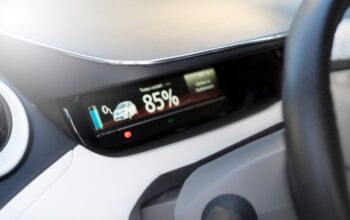Disclosure: As an Amazon Associate I earn from qualifying purchases. This page may contain affiliate links, which means I may receive a commission if you click a link and purchase something that I have recommended. There is no additional cost to you whatsoever.
January 7, 2019
Nowadays, we can observe a growing interest in powering transport with alternative forms of fuel. Statistics clearly show that there’s a huge need for a change in the way in which transportation fleets influence our planet.
Why is action needed?
Alarming figures presented by the Fourth National Climate Assessment by the U.S., have led renowned organizations and research centers to urgently look into other means to fuel the various modes of conveyance and transportation.
Also the European Commission has warned that aircraft emit 4% of greenhouse gas worldwide. In the era of consumptionism, influential shipping companies discharge a burden as heavy as 866 million tons of carbon dioxide daily.
The plans to invest in different forms of biofuels are aimed at effectively controlling the mounting carbon dioxide emissions by planes and ships. This will lead to the organizations that own these vehicles to become more environmentally responsible as well as sustainable in the long run.
Alternative Options for Controlling Marine Vessels’ Emissions

Some interesting fuel alternatives have been experimented with for dangerous emission control.
The U.S. Navy took the bold and pricey step to trial run a 49-foot gunboat that used a blend of algae-based fuel and fossil fuel. The mission was successful. The original plan was to use a mixture of nuclear power and renewable fuel. However, this took a different turn after the U.S. took steps to exit the Paris Agreement.
This victory for alternative fuels will surely open the way for marine transportation to be run exclusively on algae-based fuel in the future.
The use of LNG (liquefied natural gas) is another possible solution for controlling dangerous emissions – considering that it doesn’t go against the oceanic sulfur limitation. It’s also a handy solution because it doesn’t need complex treatment and doesn’t emit excessive CO2. Many companies around the world are currently trialing this fuel for powering their marine vessels.
Methanol can be made from coal, natural gas, or other renewable sources, and it’s becoming a popular substitute for petrol. It’s a renewable type of fuel which doesn’t exceed the sulfuric safety limit. It’s now being used as a fuel for ferries and can be used alongside LNG.
Powering ships and marine vessels with electricity may seem like a fantasy – but it’s already becoming a reality. Electric containers are being introduced, which will make it more feasible to transport goods at less cost and in a more sustainable manner. Expect more marine vessels to go the electric-powered route in the next few years.
Will Aircraft Use Electricity Too?

There’s a ton of potential in the idea of aircraft being run on electricity. And researchers and scientists alike have been tirelessly working on making this feat victorious for a long time now.
A number of successful missions have been made to test the reliability of electric aircraft on low budgets and decent mileage. These aircraft require batteries to operate. However, the major problem is the time needed for charging the batteries while using them in our daily lives. One fact is clear though, that we need sound, strong and safe batteries if we’re going to achieve the task of using electricity as a viable fuel without any issues for commercial purposes.
Thanks to the latest research and technological capabilities, another alternative energy source called biojet has also been recently introduced. Virgin Australia has worked in close collaboration with various fuel supplying organizations to come up with this fuel. Biojet is a diamond in the crown of Virgin Australia, as it can be produced sustainably with reduced carbon discharge. It’s already being used by several important airports in the U.S. and Norway.
Biofuels are a sustainable and practical way to prevent the environmental harm caused by the diesel engines of ships and aircraft. The world is now opening its eyes towards eco-friendly options for the fuel required by different transportation vessels.
Let’s wait for the next step in the realm of renewable fuels. Hopefully, it will help to significantly lower emission levels compared to today’s transportation – and lead to a cleaner, greener world.

Giles Kirkland is an environmentally conscious car expert with a passion for clean technologies within the motoring industry. Apart from commenting on the latest automotive innovations, he also enjoys sharing his knowledge with other sustainable living enthusiasts. You can find him on Twitter.








